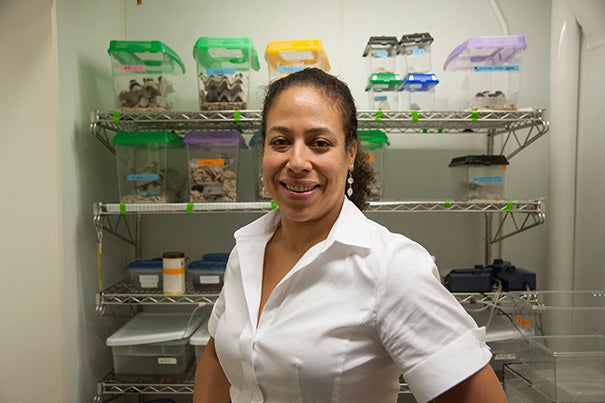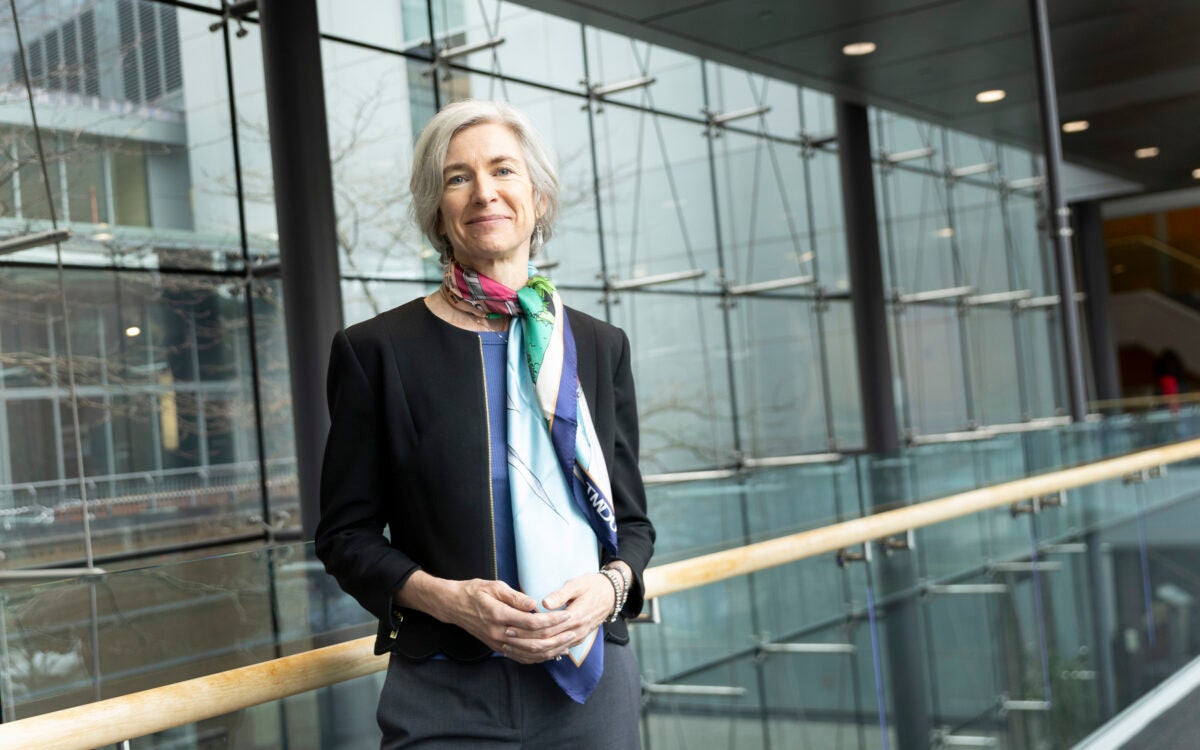
Associate Professor of Organismic and Evolutionary Biology Cassandra Extavour heads up the Evo-Devo-Eco Network (EDEN), a collaborative group of researchers devoted to encouraging the study of nontraditional “model” organisms.
Jon Chase/Harvard Staff Photographer
The bounty of EDEN
Program encourages use of alternative creatures in studies
Cassandra Extavour wants scientists to move beyond the fruit fly. An associate professor of organismic and evolutionary biology at Harvard, Extavour heads up the Evo-Devo-Eco Network (EDEN), a collaborative group of researchers devoted to encouraging the study of nontraditional “model” organisms, ranging from sea anemones to crickets to moss.
“In experimental research, we usually have to reduce complex problems to simpler ones by making some assumptions,” Extavour said. “The model-organism concept is based on the principle that what works in one organism works in the same way or in similar ways in other organisms. If one is trained to work only with one organism or with one set of tools to solve problems, then we can forget the assumptions that we started off with. Moving between systems keeps you fresh, and keeps you guessing, so that you’ll always be asking yourself ‘How do I know that that is really mutant?’ Or ‘How do I know that that is really normal?’ ”
Funded by the National Science Foundation (NSF), EDEN provides researchers with funding for resources to allow the use of off-the-beaten-path animals in their labs. The challenge for researchers, Extavour said, is that projects using nontraditional model organisms are often turned down by funding agencies because of a perceived risk contained in working with creatures that aren’t often seen in the lab, and because there are fewer well-established techniques connected to them.
This concern stems in part from the lack of a large knowledge base and experimental protocols for nontraditional model organisms. For traditional organisms such as fruit flies or mice, the experimental tool kit is extensive, the result of more than 100 years of work. Techniques to study other organisms, however, may have been developed in just the past decade (or in some cases may not yet exist).
This is where EDEN comes in, Extavour said. By providing funding and support to researchers working on techniques and tools using nontraditional model organisms, the resulting data will allow researchers to access information about different evolutionary pathways than those followed by the lineages of the traditional model organisms.
A number of deep evolutionary questions cannot be answered by examining only one organism, Extavour said. Her own research provides a clear example of why a comparative approach is important in preventing researchers from reaching incorrect conclusions. In a recent paper published in Current Biology, Extavour’s research found that studying germ cells in many different animals provided valuable insight into the origins and ancestral functions of the oskar gene, a finding that might have been impossible had she not studied nontraditional organisms such as crickets, as well as traditional insects such as fruit flies.
EDEN also sponsors undergraduate fellowships to encourage work in unusual organisms, as well as cross-university visits involving graduate students, postdoctoral students, and professors who can develop and share new techniques.
By encouraging visits between researchers, the EDEN program promotes new research techniques that can be shared and improved over time. Although EDEN is only two years old, Extavour said, the program has been well-received by the research community. EDEN receives many more applications than it can support. Researchers are excited to share experiences, develop new tools, and build on each other’s strengths.




